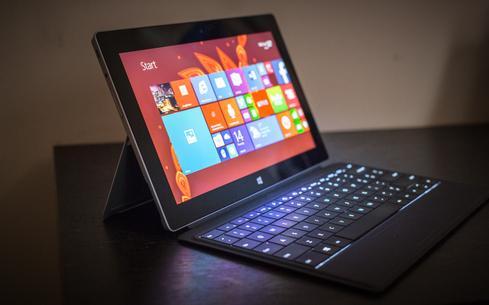Can Windows Tablets Break Out In 2014?
One lesson to date: While Apple can still command top dollar, Windows tablets only become widely desirable when they drop to Android-level pricing.

Indeed, yet another survey suggests Apple managed, despite its already massive market share, to improve iPad sales by 8% during the holiday quarter.
This year's Consumer Electronics Show also painted a less-than-rosy picture of Windows tablets' prospects. Longtime Microsoft ally Intel focused more attention at the show on wearable technology than Windows 8.1 devices. And when Windows 8.1 came up, the conversation revolved around Intel's dual-OS platform, which allows Windows 8.1 and Android to run natively on the same chip. The very existence of this technology implies Windows 8.1 isn't appealing enough on its own.
"I think [dual OS] won't be necessary if Microsoft gets its act together," said Carolina Milanesi, who specialized in mobile devices as an analyst at Gartner and now serves as director of insight at Kantar Worldpanel.

The Asus Transformer Book Duet is the first device to integrate Intel's dual OS chip.
She said a dual OS reinforces that users can continue to use Android for most things, switching over to Windows only when they need legacy software. "What good does that do? How is that helping Microsoft stay relevant?" Milanesi asked.
More likely than not, Microsoft's not thrilled with the dual-OS concept. But the fact that OEMs asked Intel to create the chip speaks to those manufacturers' lack of confidence in Windows 8.1. Most of them are diversifying their offerings to include Chromebooks and Android models. They're still making Windows tablets, too, but it seems Microsoft's devices can't support partners like they used to. At Lenovo's CES exhibit, for example, representatives were much more interested in the proprietary software the company layers on top of Windows 8.1 than in the underlying OS itself.
Microsoft needs to "get in position where customers choose [Windows 8.1]," Milanesi said. "Maybe people still want Android, too, for whatever reason, but they actually choose to spend time with [Windows]."
Indeed, at the low end of the computing market, many customers have chosen Chromebooks and inexpensive Android devices. The iPad is entrenched at the high end, and Samsung's new 12.2-inch, productivity-oriented slate could make a splash there too.
The Surface is a fine device for a certain segment of users, namely people who want a tablet that acts more like a laptop. But these people seem to constitute only a niche group. Some prefer to keep laptops and tablets separate; for some tasks, convergence is more compromise than convenience. Other users seem to have concluded that though Windows 8.1 can handle many tasks, iOS and Android more gracefully handle the tasks that matter most.
The Surface line might be growing modestly, but in such a competitive market, it's hard to see -- barring the introduction of some killer new feature -- how Microsoft's devices, and Windows tablets in general, have enough maneuvering room to break out.
Michael Endler joined InformationWeek as an associate editor in 2012. Michael graduated from Stanford in 2005 and previously worked in talent representation, as a freelance copywriter and photojournalist, and as a teacher.
Incidents of mobile malware are way up, researchers say, and 78% of respondents worry about lost or stolen devices. But while many teams are taking mobile security more seriously, 42% still skip scanning completely, and just 39% have MDM systems in place. Find out more in the State Of Mobile Security report. (Free registration required.)
About the Author(s)
You May Also Like







